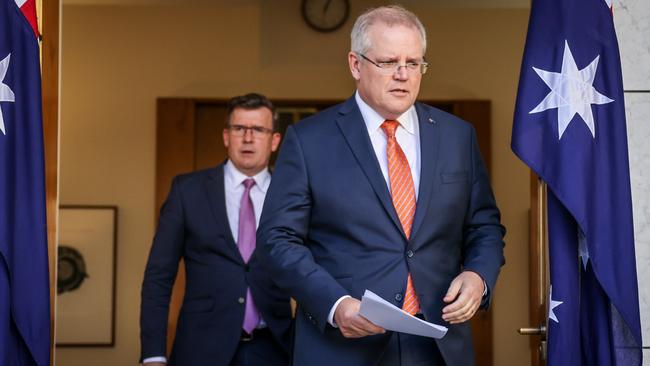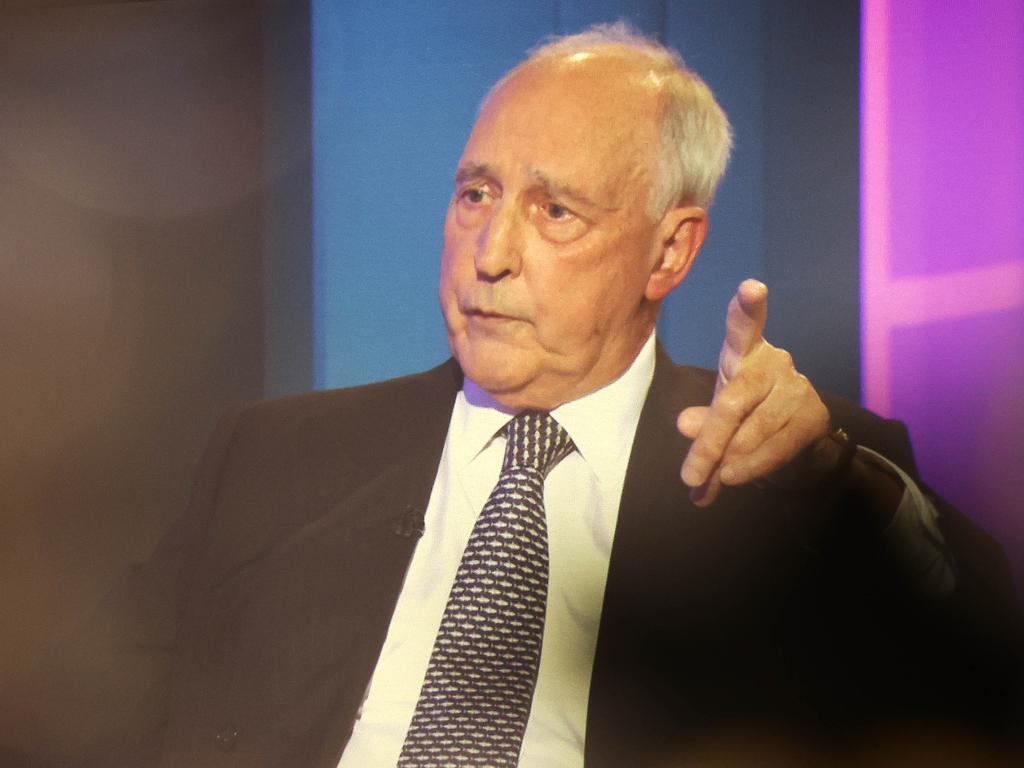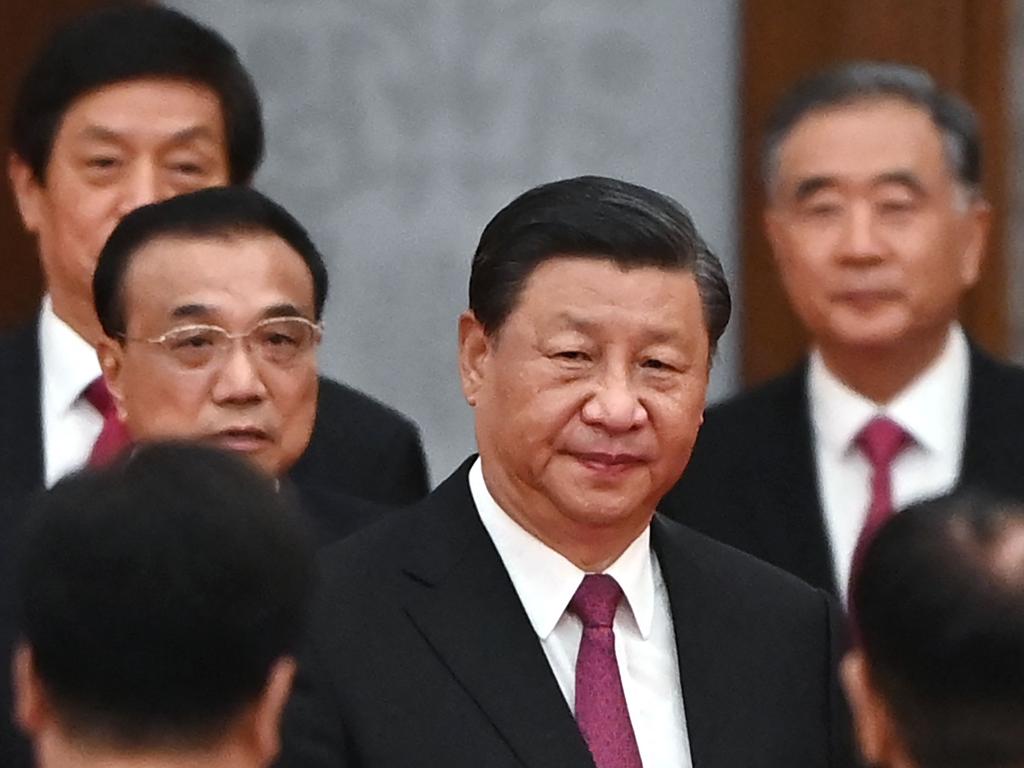
Back then, so it seemed, everyone wanted a country that was free and fair, because that was the best guarantee of prosperity and security; and all of us, whether Liberal-inclined or Labor, were fiercely loyal to Australia.
Of everything that’s changed over my adult lifetime, perhaps that’s the most striking; it’s not the rise of the online world but the decline of belief in the fundamental worthiness of the Australian project, or even what it means to be Australian at all.
So much that was intellectually accepted, even just a generation ago, is now aggressively contested or in complete eclipse, including something as basic as whether the settlement of Australia marked the arrival of modernity into an ancient continent or the dispossession of its rightful owners. Of course, it was both. Yet as the latter understanding has rightly provided balance to the former, our once strong and confident sense of self and pride in country has become tainted with illegitimacy. It is not yet to the point of paralysis (or shame, as some activists might hope) but how far off can that be, especially when every official event starts with an acknowledgement not of Australia, but of the country that “always was, always will” belong to a particular Indigenous clan?
Likewise identity issues, and especially gender; appreciating human complexity risks disappearing into a vortex of fluidity where nothing is certain from one year to the next (symbolised by the annual changes of gender on birth certificates now permitted under Victorian legislation). And likewise the environment, where concern to preserve our built and natural heritage – especially clean air, clean water and pristine bush – is totally subordinated to reducing global emissions.
This shift in the political battle from economics to culture has been much easier for Labor to navigate. Unlike the Liberals, Labor’s fundamental concern has always been justice rather than prosperity. Identity politics demands an absolutism that is easy for Labor. By contrast, the Liberals’ belief in the individual and self-reliance butts up against a movement that now prioritises victimhood and grievance over community and resilience.
At heart, what’s in question here is the Enlightenment understanding that few causes and few individuals are without flaw; hence we advance by being open to others and their views, in order to arrive at a progressively deeper understanding and fullness of truth. But to the contemporary left, as to the medieval church, “error has no rights”, which is why cancelling rather than debating a dissenter is now the first reaction.
Instinctively, philosophical liberals are “seekers after truth”. They’re not natural warriors. That’s why, up against warriors – whether culture warriors, climate warriors, or identity warriors – they tend to retreat and compromise. Hence the sense, now rampant among the Liberal base, that there’s less and less difference between Labor and Liberal on policy; that on issues such a net zero or electric cars, for instance, Labor’s position at the last election will be the Liberals’ at the next one.
How do decent, easygoing people defend themselves against fanatics without succumbing to fanaticism? How do the tolerant defend themselves against the intolerant without sacrificing their tolerance? Because it’s that selfsame Enlightenment liberalism that, from its heyday, has given us a world that is still more free, more prosperous and more peaceful than at any other time. It’s a challenge that earlier generations have managed but this generation is struggling with – hence the sense that we’re managing our decline, even though modern Australia (and the wider West) has never been less racist or more sensitive to difference; never been more environmentally aware; and never been more generous to the disadvantaged.
This week’s treatment of electric cars was a microcosm of the Morrison government’s approach to politics. It wasn’t about ends but about means. Like Labor, it wants a vast increase in electric car use. The difference is not over emissions reduction via electric cars and whether our grid can even cope; the difference, so the Prime Minister said, is between Labor’s supposed intention to ban fossil-fuel-powered cars by a particular date and the Liberals facilitation (via subsidy) of people’s choice. To a lot of traditional Liberal voters, that sounds like hair-splitting. Hence the Liberal base’s anxiety that lack of cultural conviction has compounded the government’s pandemic-driven relaxation of budget responsibility and commitment to freedom, and that this is a government that won’t fight for anything except being in office.
This is where last week’s election in the US state of Virginia has been so seismic. The victory of governor Glenn Youngkin on an orthodox centre-right platform of cutting taxes, cutting regulation and supporting the police – but with the added ingredient of banning leftist race indoctrination in schools – has reassured conservatives that the culture wars might be winnable after all.
If “quiet Americans” can back a candidate who promised to stand up for their values in schools, maybe the “quiet Australians” who backed Scott Morrison against a big-spending and emissions-obsessed Labor Party in 2019 might forgive his subsequent delinquencies – if, next term, he might become a warrior against the politically correct brainwashing in schools that has done so much to push our whole culture to the left.
For months now, federal Education Minister Alan Tudge has been railing against the new draft national curriculum; his latest criticism was that young Australians might no longer be ready to defend our country if they’d been convinced at school that it wasn’t worth fighting for. And he’s right.
The trouble is that, right now, it has all been words, which – unless the Prime Minister is prepared to back them with action, such as vetoing the draft national curriculum – means he is managing his decline, not just ours.








Elections are much more than just a choice between different political parties; fundamentally, they are a contest over the sort of country we want for ourselves and our children – one that goes more in one party’s direction or the other. Historically, voting Liberal meant smaller government and lower taxes, as well as protection for the individual; voting Labor meant bigger government, an interventionist state and more spending to ameliorate “injustice”. But as John Howard often used to say, echoing Bob Menzies, the things that unite us as Australians are more important than anything that might divide us.